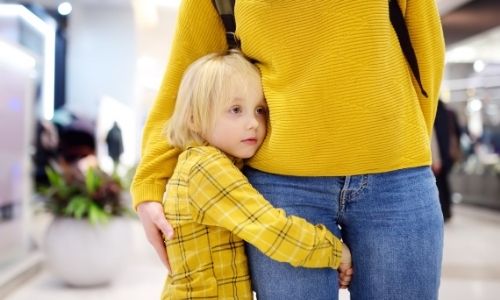Separation Anxiety - how to help your child get back to school
School is about to go back and it can be time of increased anxiety for both kids and parents, particularly separation anxiety.
Kids show signs of anxiety and irrational fears for a wide variety of reasons and going back to school is a big one. The way the child responds can range from a feeling of nervousness, worry to extreme anxiety or fear.
As a parent there is nothing more concerning in not being able to help your child and I am often faced with parents who are desperately looking for answers often after years of visiting therapists and medical experts to no avail.
One of the main causes of anxiety in kids is CHANGE.
It’s not difficult for a parent to detect that something is not quite right. When an emotion such as anxiety becomes more severe it is often accompanied by physical problems such as sore tummy, headache etc. If there are persistent physical issues I would always suggest you get your child checked out by a medical professional. As a parent I always went with my own gut when it came to this.
Separation anxiety happens when your child is in that stressed, anxious or struggling physically and when in this zone the last things they want is to be separated from that person they feel safe with. Often rationality goes out of the window and they become upset, tearful and as, I said above, this can present with physical problems as well.
Recognising that change is something we all have to live with and going back to school for most is non negotiable. So how do you help your child deal with change whilst helping them to build both confidence and resilience
The way a kids brains work
Kid’s brains are full of imagination and daydreaming , but they are also trying to make sense of the world around them. Kids under the age of 5 often don’t have the maturity or understanding to make sense of these sometimes overwhelming emotions. We often talk about a feeling being either bad or good, using our hands to measure how big or small it is. Fear of something such as being alone, the dark, noises, monsters etc are often created because of something the child has seen in a game or movie or maybe they imagined something based on a conversation. Another good reason to monitor what they are watching.
Because they are unable to verbalise how they feel their imaginations may make up something that make sense to them, ie there is a scary Monster under the bed and I can’t sleep rather than articulating that they feel insecure and scared of meeting new kids.
How you can help
The most important things to remember is that this is NOT a behavioural issue. He or she needs your empathy. A simple way of explaining this is its like his/her little brain has been highjacked with this constant alarm going off all the time.This is not an effort on their part to manipulate you. So how, as a parent can you help your child to feel safe.
One thing we know for sure is that logic, rational thinking and discipline are not going to help this situation and may actually make it worse.
Start by asking the question – “How can I help my child to feel safe?” and what should we talk about? The No. 1 way to help an anxious child feel safer is by zeroing in on the feeling and understanding it. “It would be scary to think there is a monster in your room. I understand why you are scared!”
There is a common misunderstanding that talking about a fear will aggravate that fear in a child, but it simply isn’t true. In fact, the opposite is true. As soon as your child sees and hears that you understand him or her, their little brain will instantly relax.
Using empathy for the going back to school example, you might talk about the positives about going back to school, seeing their friends, playing together, new things to learn and then if they have something that upsets them like meeting explain how we all get nervopus meeting new people even adults but you might meet someone who becomes your best friend. It’s about finding a positive slant.
With this kind of approach the child’s brain moves out of flight and fight mode and into the relaxed and calm zone. And the voice inside their head says “Mum is listening. She gets me. I am safe.”
I have a couple of stories on the app that focus really well on these strategies above. Amelie Goes Back to School has a strong message embedded within to help build confidence and resilience. Another story on the App called the Land of Bubbles is all about overcoming a fear of the dark but can be used to help with any fear. Finally for older kids 12+ there is a new story on the app called Focus on the Positives which is to help build self esteem and resilience. All these stories are being showcased on the app this week
